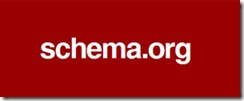
Schema.org 2.0
About a month ago Version 2.0 of the Schema.org vocabulary hit the streets. But does this warrant the version number clicking over from 1.xx to 2.0?
Check out our new fixed price service to find out how your site is performing!

About a month ago Version 2.0 of the Schema.org vocabulary hit the streets. But does this warrant the version number clicking over from 1.xx to 2.0?
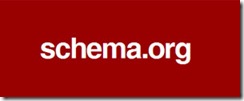
This post is about an unusual, but very useful, aspect of the Schema.org vocabulary — the Role type.

Google announced yesterday that it is the end of the line for Freebase – will this be good for Wikidata?

It is one thing to have a vision, regular readers of this blog will know I have them all the time, its yet another to see it starting to form through the mist into a reality. Several times in the recent past I have spoken of the some of the building blocks for bibliographic data to play a prominent part in the Web of Data. The Web of Data that is starting to take shape and drive benefits for everyone. Benefits that for many are hiding in plain site on the results pages of search engines. In those informational panels …

Several significant bibliographic related proposals were brought together in a package which I take great pleasure in reporting was included in the latest v1.9 release of Schema.org

They’re released! A couple of months back I spoke about the preview release of Works data from WorldCat.org. Today OCLC published a press release announcing the official release of 197 million descriptions of bibliographic Works. A Work is a high-level description of a resource, containing information such as author, name, descriptions, subjects etc., common to all editions of the work. The description format is based upon some of the properties defined by the CreativeWork type from the Schema.org vocabulary. In the case of a WorldCat Work description, it also contains [Linked Data] links to individual, OCLC numbered, editions already shared …

One of the most challenging challenges in my evangelism of the benefits of using Schema.org for sharing data about resources via the web is that it is difficult to ‘show’ what is going on. The scenario goes something like this….. “Using the Schema.org vocabulary, you embed data about your resources in the HTML that makes up the page using either microdata or RDFa….” At about this time you usually display a slide showing html code with embedded RDFa. It may look pretty but the chances of more than a few of the audience being able to pick out the schema:Book …
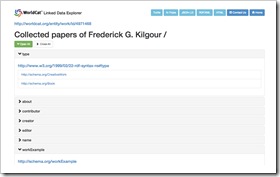
Since announcing the preview release of 194 Million Open Linked Data Bibliographic Work descriptions from OCLC’s WorldCat, last week at the excellent OCLC EMEA Regional Council event in Cape Town; my in-box and Twitter stream have been a little busy with questions about what the team at OCLC are doing. Instead of keeping the answers within individual email threads, I thought they may be of interest to a wider audience: Q I don’t see anything that describes the criteria for “workness.” “Workness” definition is more the result of several interdependent algorithmic decision processes than a simple set of criteria. To …
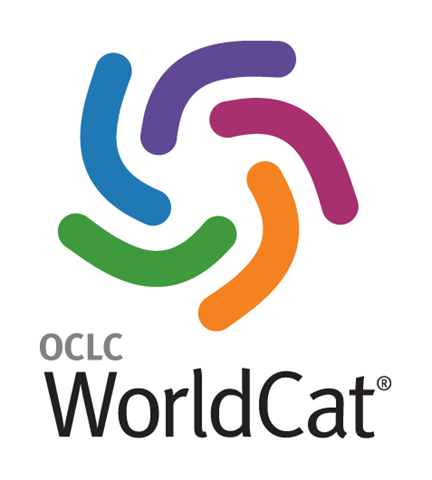
demonstrating on-going progress towards implementing the strategy, I had the pleasure to preview two upcoming significant announcements on the WorldCat data front: 1. The release of 194 Million Linked Data Bibliographic Work descriptions. 2. The WorldCat Linked Data Explorer interface
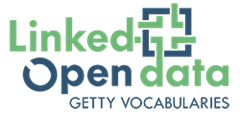
The Getty Research Institute has announced the release of the Art & Architecture Thesaurus (AAT)® as Linked Open Data. The data set is available for download at vocab.getty.edu under an Open Data Commons Attribution License (ODC BY 1.0). The Art & Architecture Thesaurus is a reference of over 250,000 terms on art and architectural history, styles, and techniques. I’m sure this will become an indispensible authoritative hub of terms in the Web of Data to assist those describing their resources and placing them in context in that Web. This is the fist step in an 18 month process to release …